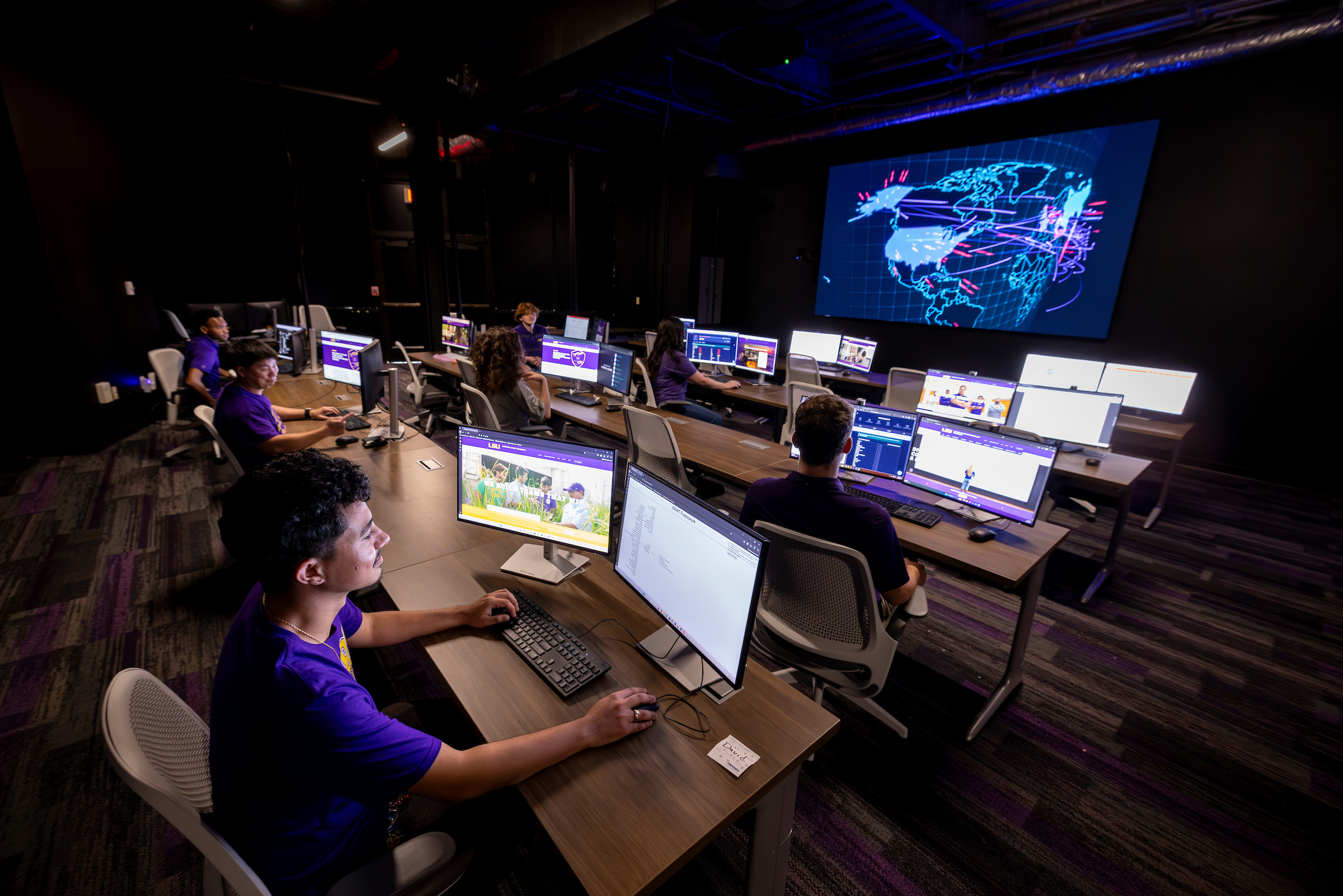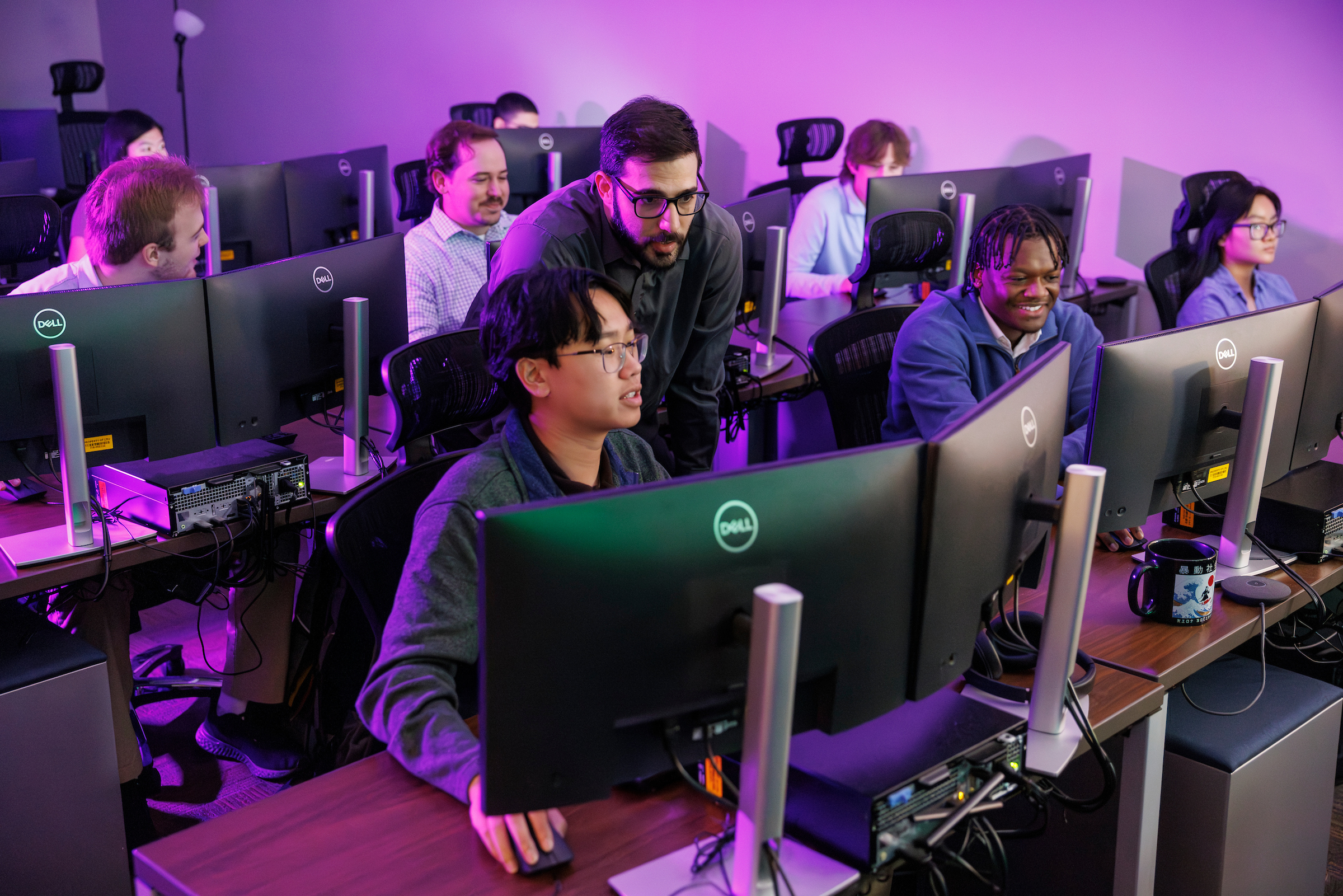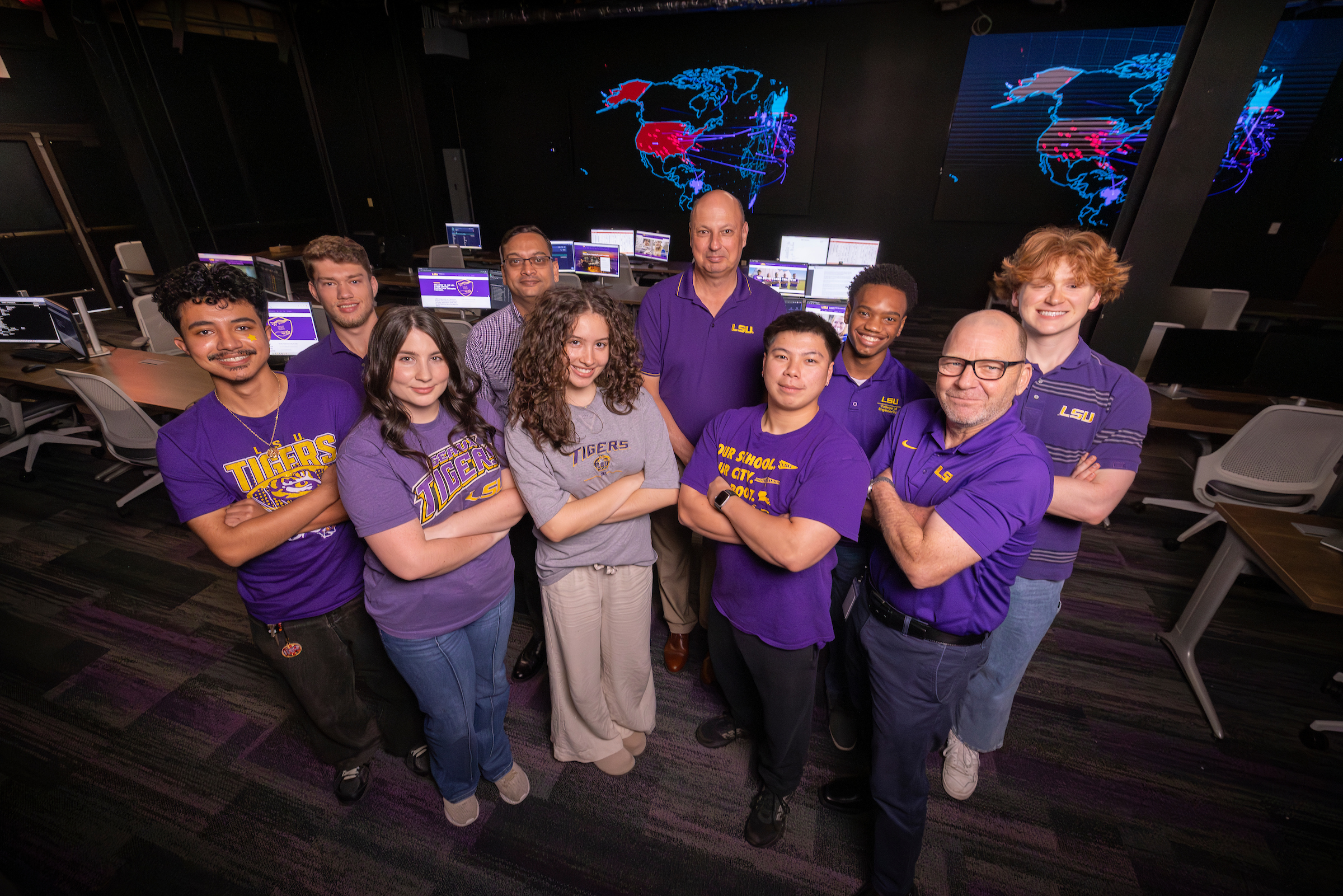TigerSOC student:
‘I truly feel like an investigator’
Aeris Kelleher is an LSU junior from Gonzales, Louisiana, studying computer science with a concentration in cybersecurity.
She also works at TigerSOC, an LSU student-run security operations center that, in partnership with TekStream, helps protect a broad group of commercial and public clients nationwide.
We asked her about her work at the TigerSOC.
See the Conversation with Kelleher



















